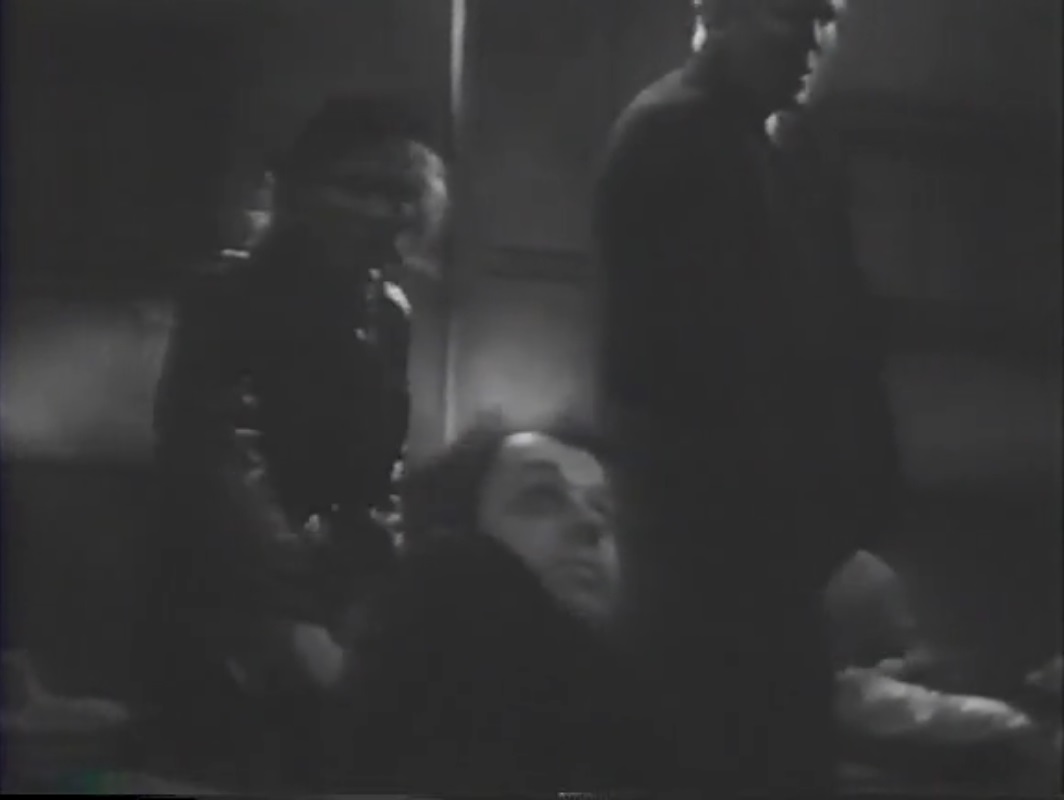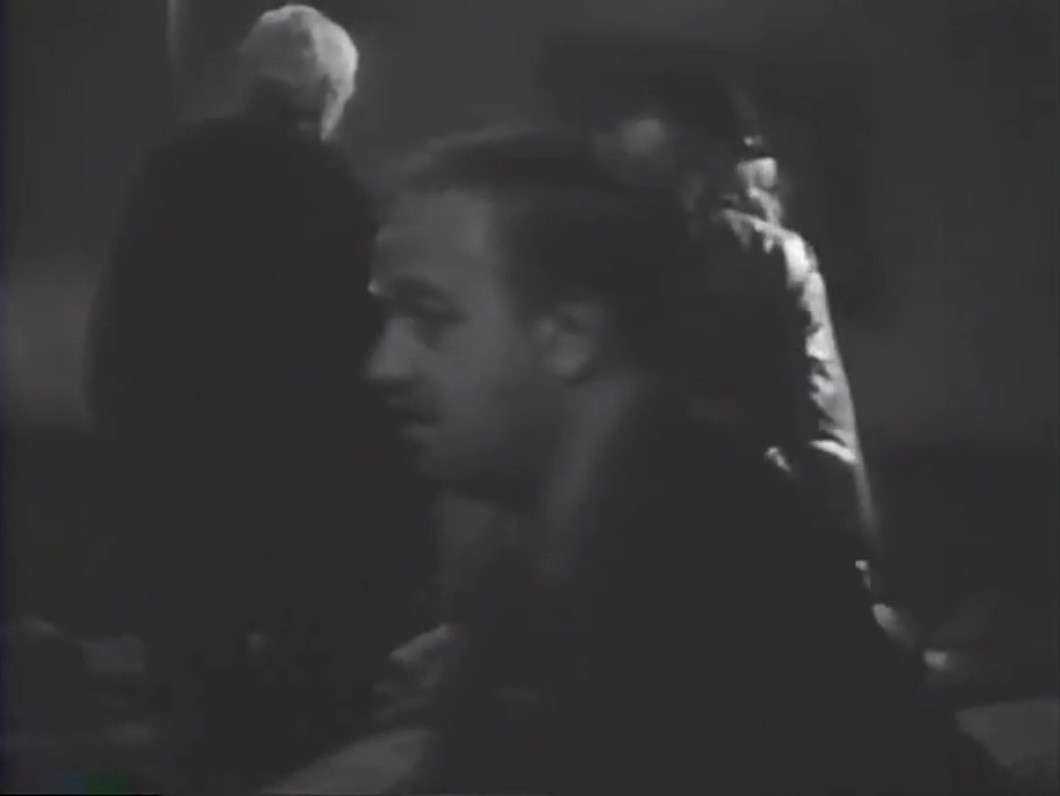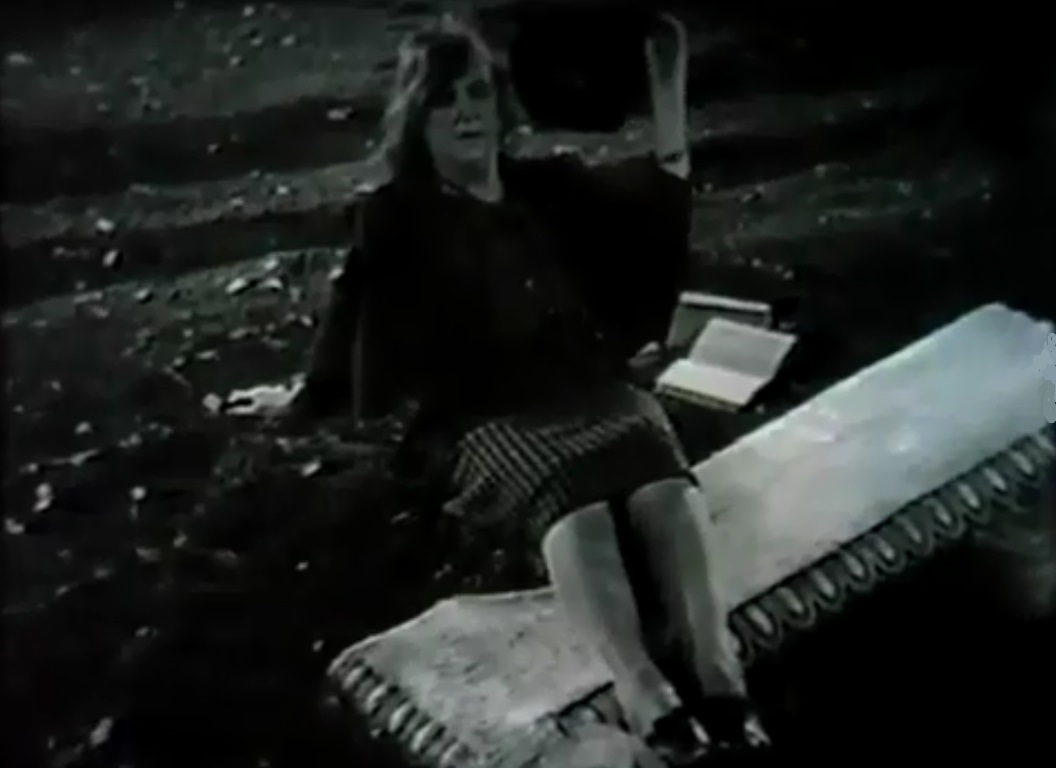Crime Without Passion
A brilliant
shyster, “Champion Of The Damned”, tries to extricate himself from
an unhappy love affair and winds up facing a murder charge.
Hecht & MacArthur
go to town on the rat with Sternberg & Dreiser at the back of their minds,
among other things.
Vorkapich throws
in an overture of Furies, to heighten the drama and set up the feint.
The Scoundrel

A New York
publisher, skinned alive quite as though he had never been. “He’s
not a man, he’s an education.”
The line of
thought works out another way for Minnelli (The
Bad and the Beautiful) and Nichols (Wolf)
variously, cf. Wellman’s Nothing Sacred.
Powell &
Pressburger nevertheless derive A Matter
of Life and Death from this, Stairway
to Heaven it’s called, nowhere to go but up.
Lee Garmes
cinematography and associate director, score from Rachmaninoff, Alexander
Woollcott lending himself to the sendup.
Andrew Sarris (The American Cinema), “the most
entertaining exposure of Broadway’s notion of sophistication ever
filmed.”
Andre Sennwald of
the New York Times, “a distinctly
exhilarating event in the cinema regardless of whether you look upon it as art
or spinach.” Variety, “the illusion isn’t
always wholly there.” Leonard Maltin,
“bizarre, sophisticated, indulgent.” TV Guide,
“must be one of the earliest existential films produced.” Don Druker (Chicago Reader),
“a leaden and pretentious melodrama.” Hal Erickson (All Movie Guide), “hard to warm up
to because the characters are so unappealing.” Halliwell’s Film Guide, “nonsense,” citing more
of the same from various sources but also Photoplay,
“if this is art, let us have more of it.”

Soak the Rich

Wid a fire hose, literally. “Marriage is a
pitfall for any intellectual.” The Movement (cf. Eugene O’Neill’s The Iceman Cometh, dir. John Frankenheimer). “I can remember
the time, Mr. Craig, when politics was an exact science, like bribery.”
“Oh, spare
me your senile notions.” Trouble at Craig University, down the decades it
all comes to pass, after a fashion (cf.
D.W. Griffith’s The Voice of the
Violin), even the shaved heads. Decades ahead in cinematic style, too (cf. Billy Wilder’s One, Two, Three). “The wives of
great men often—”
“Skip
that.” The ransom note. “You million dollar wolf—”
“What?”
“Wolf.
Million dollar wolf...”
“Obviously
from one of the Three Little Pigs.” Deep sigh. “Good clue! A movie
fan,” Lubitsch’s Ninotchka
is three years and three thousand miles away. Probably the funniest script ever
written, put before the camera by the writers and producers this time without
an assist, perfectly. “The big difference between the so-called Russian
utopia and my utopia is that my utopia will have no government whatsoever,”
vd. Léo Joannon on Laurel and Hardy (cf. Costa-Gavras’ État de siège and
later on L’aveu).
“That dirty
underhanded sneak, comin’ here with a story she
was in danger, workin’ on my humanity, well, he’s
not gonna get away with it!”
“Radicalism
is the bunk, and so is Karl Marx, and so are the
Russians, and you too!”
“I know women, I know them
like a book.”
“If
I’ve got to be soaked, I might just as well be soaked by the Reds as
anyone else. If capitalism must fall—let it fall tonight.” It gets
down to cases. “I don’t expect you to understand, sir,
but—but I have ideals.”
“You’ve
got what?” Again. “I was
supposed to marry somebody I didn’t love, I can never love anybody again,
ever, I’m
completely frigid. Oh, completely!”
“Is that
so?”
“Yes.”
And again. “Oh, I—I’ve just ruined your intellectual life, but it will mend, won’t
it? If you read a lot of books? And forget about everything else?” Cf. John G. Avildsen’s
Joe. “Bindy,
I gotta sit down.” Cf. Dassin’s The
Rehearsal or Hagmann’s The Strawberry Statement, or for that matter Thornton
Wilder’s The Matchmaker (dir.
Joseph Anthony) or Hello, Dolly!
(dir. Gene Kelly). And again, “I know where it is, Mabel.”
“My dear,
his tie, it is, uh...” A pivotal work (cf. Oscar Wilde’s The
Importance of Being Earnest, dir. Anthony Asquith, explaining
Russell’s Savage Messiah at
length), a box office failure in 1936 alongside Sternberg’s Crime and Punishment,
Boleslawski’s Three Godfathers,
Walsh’s Klondike Annie, and
Henry Edwards’ Scrooge with
Seymour Hicks. It may be recalled that Peter Sellars
(King Lear, dir. Jean-Luc Godard)
once smilingly told an interviewer the purpose of art was to soak the rich. O’Casey
states the case in The Plough and the
Stars (dir. John Ford the following year).
Frank S. Nugent
of the New York Times, “a
rather cruel lampooning”. Leonard Maltin,
“thoroughly unwatchable.” TV
Guide, “socially conscious”. Hal Erickson (All Movie Guide), “many critics regard it as one of the worst
films of the 1930s.” Halliwell’s
Film Guide, “smartly written”, citing Variety, “inadequate entertainment.”